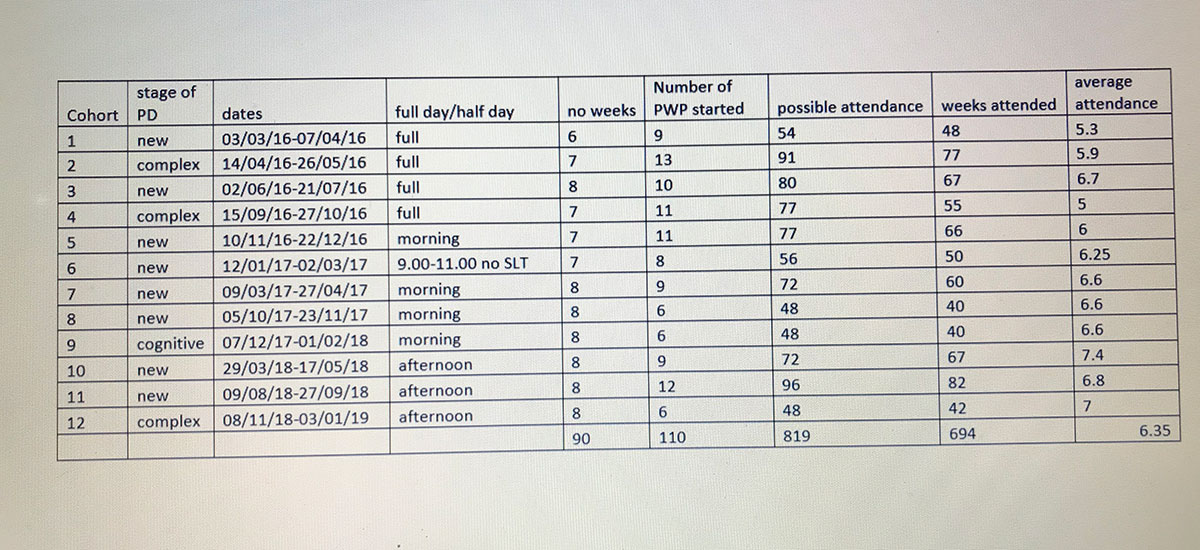Session Information
Date: Tuesday, September 24, 2019
Session Title: Education / History in Movement Disorders
Session Time: 1:45pm-3:15pm
Location: Agora 2 West, Level 2
Objective: To ensure we have a flexible education and treatment programme format, designed for people with Parkinson’s disease (PWP), relevant to their time since diagnosis, stage of disease and level of functioning and cognition and which is cost effective to our service.
Background: Evidence suggests that the better a patient understands their condition, the better their acceptance of diagnosis, treatment choices and quality of life will be. Group programmes are of benefit in helping people network and cope with the diagnosis. For exercise there is evidence that high intensity, forced exercise, with dual tasking and large amplitude training can improve long term motor function, might slow down the progression of motor decay and have a neuro-protective effect. Potentially enhance brain neuroplasticity and increase plasmatic levels of different neurotrophic factors. For Speech and Language therapy (SLT) the evidence based treatment is Lee Silverman Voice Treatment method (LSVT®). A therapy method to help patients to internally cue themselves focusing on vocal loudness,
Method: Retrospective review of data gathered during our Education programme. Outcome measures were employed for balance, gait speed, dual tasking , speech, function, quality of life and symptom scores, (actual measures used changed) Patient feedback at end of each cohort helped determine content of future cohorts. Questionnaires were given out at random in routine MDC follow up to gauge what they remember about their group.
Results: 12 groups have run since march 16 Table 1 Table 1 shows Cohorts 1-12, stage of disease and attendance. All cohorts have a core of PD specific knowledge e.g.Aetiology, medication, motor and non motor symptoms. Physio including PD warrior or similar exercise. SLT using loud voice group therapy. Solicitor; Wills, Power of atorney etc. Parkinson’s UK support worker. Optional extras; Carers centre, Wellbeing, Arts, continence, cueing, falls prevention, dietician, continence, OT.
Conclusion: We now have a stable education base for each cohort with extra components which are added when appropriate for the group. Patient feedback and research have driven change. questionnaires have shown that even 7 years after the sessions patients can still remember some of the key components helping them to understand their condition, make informed choices and live well with Parkinson’s.
To cite this abstract in AMA style:
P. Sloan, J. Farrell, J. Mchattie, L. Ebenezer, H. Evans. The development of a patient education and treatment programme for people with Parkinson’s disease [abstract]. Mov Disord. 2019; 34 (suppl 2). https://www.mdsabstracts.org/abstract/the-development-of-a-patient-education-and-treatment-programme-for-people-with-parkinsons-disease/. Accessed February 19, 2026.« Back to 2019 International Congress
MDS Abstracts - https://www.mdsabstracts.org/abstract/the-development-of-a-patient-education-and-treatment-programme-for-people-with-parkinsons-disease/

